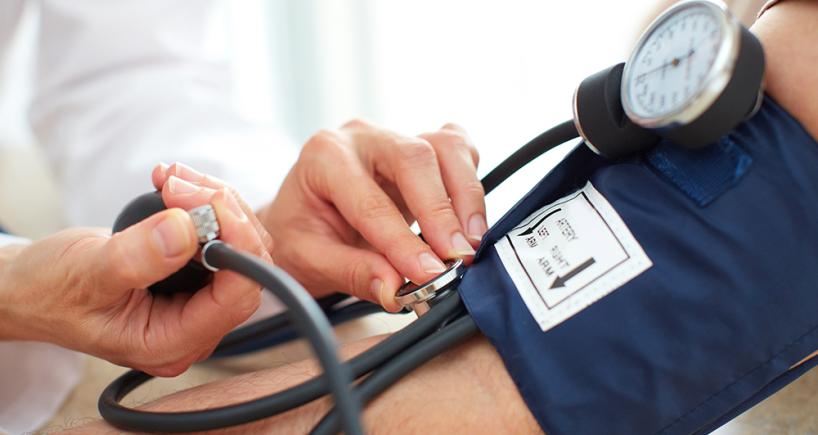
HYPERTENSION- Know it the Better Way
Hypertension or high blood pressure or BP is a common condition in which the long-term force of the blood against artery walls eventually leads to healthy ailments, such as heart problems. There are two ways to determine blood pressure one by the amount of blood heart pumps and the second the amount of resistance to blood flow in arteries. Numerously relationship between blood pressure and heart disease risk has been established in men and women of all ages regardless cultural, social or economical boundaries.
Scientific definition- Hypertension is defined as having a blood pressure higher than 140 over 90 mmHg, with a consensus across medical guidelines. This means the systolic reading (the pressure as the heart pumps blood around the body) is over 140 mmHg (millimeters of mercury) and/or the diastolic reading (as the heart relaxes and refills with blood) is over 90 mmHg.
Fortunately, high blood pressure can be easily detected and there are many ways to control it. Most of the people who have high blood pressure will present with no signs or symptoms, even if blood pressure readings reach dangerously high levels. The symptoms of high blood pressure aren't specific and usually don't occur until high BP reaches life-threatening stage.
There are two types of high blood pressure- Primary Hypertension and Secondary Hypertension.
- Primary Hypertension develops gradually over many years and there is no defined cause of high blood pressure in this case. Most adults with sedentary lifestyle will have primary hypertension some day in lifetime.
- Secondary hypertension is the type of high blood pressure caused by an underlying condition. People with kidney problems, fatty liver, thyroid problems, alcohol abuse, tumors or sleep apnea may develop secondary hypertension.
| Classification of blood pressure for adults | ||
| Category | systolic, mm Hg | diastolic, mm Hg |
|---|---|---|
| Normal | 90–119 | 60–79 |
| High normal[7] (Prehypertension) | 120–139 | 80–89 |
| Stage 1 hypertension | 140–159 | 90–99 |
| Stage 2 hypertension | 160–179 | 100–109 |
| Stage 3 hypertension[72][73] (Hypertensive emergency) | ≥180 | ≥110 |
| Isolated systolic hypertension | ≥140 | >90 |
Symptoms of hypertension
Referred as 'THE SILENT KILLER' high blood pressure is asymptomatic as it can quietly cause damage to the cardiovascular system
Risk factors
High blood pressure has many risk factors, including:
- Age- As you age the risk of high blood pressure will increase. Men are likely to develop high blood pressure at the age of 45 while women may develop high blood pressure after the age of 65.
- Family history- High blood pressure tends to run in families.
- Being overweight or obese- Keep the close eye on your weight. The more you weigh the more blood you need to supply oxygen and nutrient to your tissues. The more blood you need the more blood pressure on vessels will increase, putting pressure on artery walls.
- Not being physically active- Lack of physical activity also increases the risk of being overweight.
- Using tobacco- the chemicals in tobacco damages the lining of artery walls resulting in rise of blood pressure. The arteries are narrowed eventually increasing the blood pressure.
- Too much salt (sodium) in your diet. Too much sodium in your diet can cause your body to retain fluid, which increases blood pressure.
- Too little potassium in your diet. Potassium helps balance the amount of sodium in your cells. If you don't get enough potassium in your diet or retain enough potassium, you may accumulate too much sodium in your blood.
- Too little vitamin D in your diet Vitamin D may affect an enzyme produced by your kidneys that affects your blood pressure.
- Drinking too much alcohol.
- Stress
Uncontrolled high blood pressure can lead to:
- Heart attack/myocardial infarction or stroke.
- Aneurysm
- Heart failure
- Weakened and narrowed blood vessels in your kidneys.
- Thickened, narrowed or torn blood vessels in the eyes.
- Metabolic syndrome.
- Trouble with memory or understanding

Several classes of medications, collectively referred to as antihypertensive medications, are available for treating hypertension. No matter what medications doctor prescribes to treat high blood pressure, you'll need to make lifestyle changes to lower your blood pressure.
Recommended lifestyle modifications:
- Eating a healthier diet with less salt
- Exercising regularly
- Quitting smoking
- Limiting the amount of alcohol you drink
- Maintaining a healthy weight or losing weight if you're overweight or obese
- Consume a diet rich in fruit and vegetables (e.g. at least five portions per day);
Remedies
- Practice relaxation or slow, deep breathing
- Control blood pressure during pregnancy
- Take your medications properly
- Adopt healthy habits.
- Manage stress
Dr. S N Khanna
Associate Director, Cardiovascular Surgery,
Fortis Escorts Heart Institute









